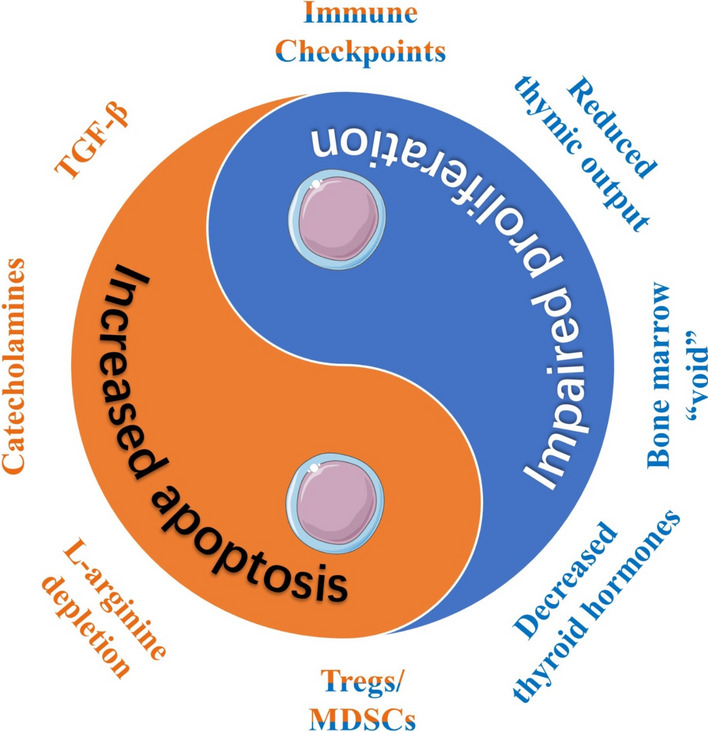Fig. 2.

Increased apoptosis and impaired proliferation of lymphocytes contribute to sepsis-induced lymphopenia. TGF-β and catecholamine release or L-arginine depletion during sepsis enhance lymphocyte apoptosis. Reduced thymic output, bone marrow “void”, or decreased levels of thyroid hormones limit the effective proliferation of lymphocytes after the onset of septic lymphopenia. Immune checkpoints and inhibitory cells, including regulatory T cells (Tregs) and myeloid-derived suppressor cells (MDSCs), induce apoptosis and impair proliferation
